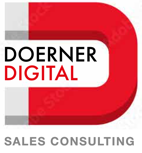- inappropriate software selection
Whether the expensive US market leader or the simple open-source system for “little money” – the CRM software must fit the budget, industry and requirement profile.
The only way that helps here is a clear definition of the requirements:
- What should the system be able to do?
- Are extensive detailed analysis and fully comprehensive KPIs necessary for me or do we concentrate on important core KPIs?
- Should the system also be used for B2B marketing campaigns?
- What might we need in the future?
Very often, an oversized CRM is purchased whose functions are not needed. Conversely, it is just as annoying when a system is purchased that only has slimmed-down or insufficient functionality. A good overview of CRM systems can be found on this page: https://uk.pcmag.com/cloud-services/67398/the-best-crm-software
- lack of acceptance, no integration of the Sales Department
If, for example, IT alone introduces the CRM and the sales unit is not integrated, acceptance is often lacking. In the worst case, the system completely ignores the needs of sales. Involving sales at an early stage also helps with customisation. Sales, for their part, should define in advance which key figures and features they need.
- indiscriminately entering addresses without pre-qualification.
This artificially inflates the CRM and creates a “data graveyard”. Data for certain actions, such as mailings, must be laboriously cleaned up or completed later.
A classic example is the inclusion of indiscriminate contacts, the more the better, without title or function designation.
- data protection insufficient
If no data protection concept is in place, this must be done before introducing a CRM.
It is also important that contacts have agreed to be contacted.
- data security insufficient
Customer data can too easily be saved by employees to a private storage device. On the one hand, this violates data protection, on the other hand, it can massively damage one’s own business. There is no absolute security here. But one should make it as difficult as possible.
- No maintenance, no one feels responsible
Data is wildly entered, overwritten or irrevocably deleted – no one feels responsible.
Data chaos quickly reigns. Only clear rules and graded responsibilities can help.
A responsible person must be appointed who defines uniform criteria and ensures that they are applied.
- over-administration:
the opposite problem also exists – a process is quickly defined and set up in CRM for every eventuality – and from then on sales only spends its time entering data and keeping track of tasks that are never evaluated. Every process cost time and should therefore be critically questioned in terms of its usefulness – and overzealous administrators should be curbed if necessary.
- Insufficient integration into the overall reporting system
For many CEOs, the sales department is a “black box”. The main thing is to get the results right, the rest is of less interest.
By clearly defining the important KPIs that can be determined from CRM, the company’s success can be controlled much better. Turnover as the only key figure is not enough.
As the multitude of points shows, the requirements for a CRM are very complex. It is worthwhile to compare and test different systems.
The introduction of a CRM is the core task of sales in order to ensure an effective and efficient customer relationship and to have an overview of important sales developments at all times. It should therefore not be left to IT or accounting.
»Copyright © 2021 Georg Doerner – All rights reserved. «
